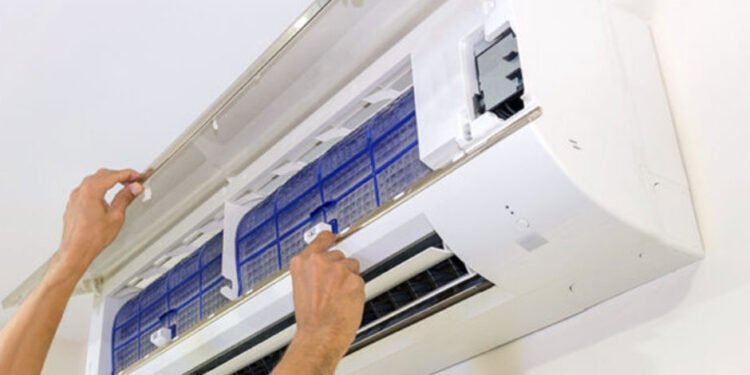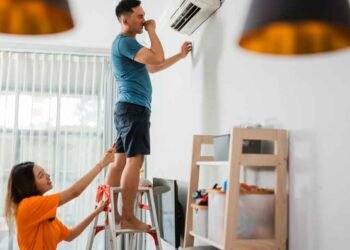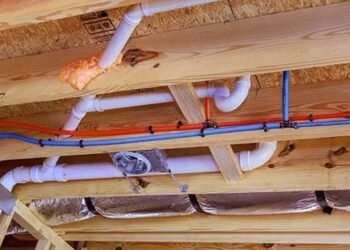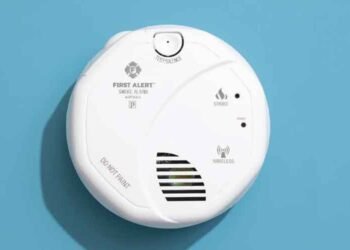Key Takeaways:
- Discover easy fixes for frequently encountered air conditioning issues.
- Discover how routine maintenance can avert expensive repairs.
- Gain insight into when professional help is needed.
- Understand the impact of environmental factors on AC efficiency.
- Explore energy-efficient practices to optimize your cooling system.
Common Cooling Issues and DIY Fixes
Tripped Breakers and Wiring Issues
One of the first indicators that your air conditioner might be in trouble is when the breaker trips repeatedly during operation. This is often caused by electrical surges or the air conditioner drawing too much power. It is vital to ensure that your unit is connected to a properly grounded outlet to enhance safety. Inspecting the wiring for any visible damage, such as frayed cords, can help identify potential hazards. Fortunately, you can maintain a reliable indoor climate by identifying common air conditioning problems and understanding simple solutions, such as consulting a Tacoma AC repair company. If the breaker consistently trips, it may indicate a more profound electrical imbalance that requires a professional touch. Proactive measures like these can help in pinpointing issues before they escalate further.
Thermostat Malfunctions
The thermostat is essential for controlling the atmosphere in your home. If it fails to operate correctly, the initial action should be to verify its configurations. Ensure it is adjusted to “cool” mode and the desired temperature is below the present room temperature. Often, something as simple as depleted batteries could be the cause. Replacing batteries regularly can prevent the misreading of temperatures and other related issues. This minor upkeep allows you to enjoy consistent indoor conditions without frequent interruptions.
Importance of Regular Maintenance
The Role of Your Air Filter
Air filters are champions for maintaining high air quality and efficient cooling. They trap dust, pollen, and other airborne particles. However, they restrict airflow when blocked, causing the system to work harder than necessary. For optimal performance, filters should be replaced regularly, every one to three months, depending on usage and manufacturer recommendations. By following these maintenance tips, you can enhance the efficiency of your unit and improve air quality significantly.
Drainage and Moisture Problems
Air conditioners do more than extraordinary; they also dehumidify. This process involves draining moisture. A clogged drain pipe can lead to water buildup and leaks, eventually causing potential water damage. Regular inspection and clearing of debris from the drain lines prevent water retention issues. This simple, preventative measure can save homeowners from extensive repairs and unwanted water intrusions that are both messy and costly.
Environmental Factors Affecting AC Efficiency
Heat Sources Within the Home
Household gadgets like lamps, televisions, and ovens generate heat, subtly affecting indoor temperatures. Positioning these items away from vents and thermostats ensures they do not interfere with the cooling process. Additionally, turning off heat-intensive appliances when not in use can alleviate unnecessary burdens on your cooling system, keeping energy bills and home temperatures at the desired level.
Outdoor Temperature Impact
During extreme weather conditions, your air conditioning unit may have difficulty maintaining the set temperature. High outdoor temperatures translate to an increased workload for the unit. Simple adjustments, like utilizing blinds or curtains on windows and insulating areas prone to heat exposure, can help reduce this extra strain. For those in especially hot climates, considering improvements to insulation might also mitigate the effects of soaring external temperatures.
When to Seek Professional Help
Refrigerant Leaks
Refrigerants are crucial for cooling; leaks can significantly affect performance and often require professional ac repair services. Replenishing refrigerant isn’t merely a refillable issue; it demands professional expertise due to environmental regulations and potential health risks. Experts possess the necessary equipment and knowledge to detect, repair, and safely recharge systems with refrigerant, ensuring an optimal and eco-friendly solution.
Worn-Out Components
Over time, the components of an air conditioning system, such as fans and compressors, can wear out due to constant use. Professional diagnostics might be necessary if your system starts emitting unusual noises or shows drop-offs in performance. A skilled technician will assess and replace worn parts to maintain system integrity, peak function, and safety, preventing unexpected breakdowns during critical operating months.
Energy-Saving Tips for Air Conditioners
- Use ceiling fans concurrently with your A/C to distribute air evenly across rooms, maximizing cooling without overreliance on the air conditioning unit alone.
- Consider the benefits of a programmable thermostat. This tool automatically adjusts your home’s temperature based on your schedule, improving efficiency and controlling costs.
- Seal gaps in windows and doors, as these are common culprits of leaks that allow conditioned air to escape. Applying weather stripping can be an efficient, low-cost solution to this problem.
Maintaining an energy-efficient air conditioning system doesn’t have to break the bank. Knowledge about frequent issues and proactive measures can help preserve a comfortable living space. With regular maintenance and efficient usage habits, enjoying a stress-free cooling experience that perfectly balances performance and cost is possible.












